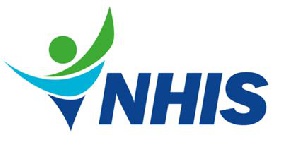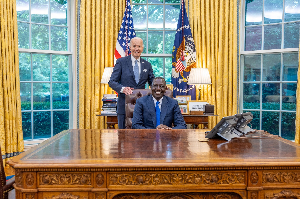Health News of Thursday, 13 November 2014
Source: GNA
Workers in Asante Mampong patronise NHIS registration
Workers in government departments and agencies and students in Asante Mampong Municipality, dashed to register for the National Health Insurance Scheme (NHIS) biometric exercise forcing officials to extend the work period to include the weekends.
Officials at the NHIS say they start work from 0500 hours and sometimes close after 2000 hours to take care of the huge numbers.
Mr Enoch Oko Otoo, Municipal Scheme Manager told Ghana News Agency (GNA) in an interview that the enormity of work forced management to set aside the weekends to facilitate the process.
He said the scheme is hoping to capture 60,000 active members by the close of the year.
He dismissed allegations that the National Health Insurance system is collapsing and questioned: “if it is collapsing why the mad rush to register?”
Mr Kodua Opoku, Management Information Systems’ Officer of the Scheme raised concern over the application network, which he said did not allow the registration process to speed up and capture many persons within a short time as expected.
“The system is slow, it sometimes takes about 20 minutes instead of the original targeted period of 10 minutes to capture an adult,” he said.
The Mampong municipality is allocated with four registration machines and expected to register 160 persons per day, however, officials say they are able to capture about 216 persons each day.
Mr Otoo said in spite of the down time and delay of the network the municipality exceeds its target of 40 entries for each machine per day, hitting 54 entries per machine per day as at October 31 records available.
An official who spoke to the GNA on the condition of anonymity observed that co-payment poses serious threat to access to quality healthcare, claiming that both government and private health facilities are guilty of the act.
Co-payment is the practice where subscribers are made to pay bills for services and drugs, which are submitted by the service provider for claims.
Mr Kwadwo Antwi-Boasiako, Public Relations Officer of the Municipal NHIS confirmed the issue of co-payment, saying some private health providers who flouted the capitation policy have had their accreditation withdrawn.
He said: “It is unethical, irreligious and inhuman for health providers, who know that patients are already in a state of agony and psychological discomfort, to make them pay fees for drugs already taken care of under the NHIS.”
He said such illegal practices undermined the capitation policy meant to address leakages in the old system that created a leeway for some providers to make claims for services and drugs they never provided to subscribers.
Officials at some health facilities who also pleaded anonymity claimed the Ministry of Finance is condoning the practise, explaining that the ministry is failing to release funds for reimbursing claims and that is perpetuating the act.











